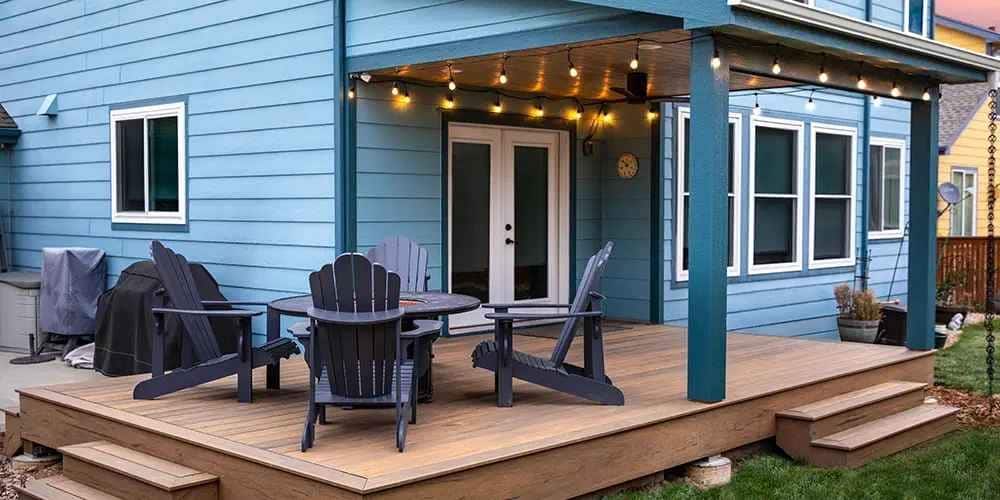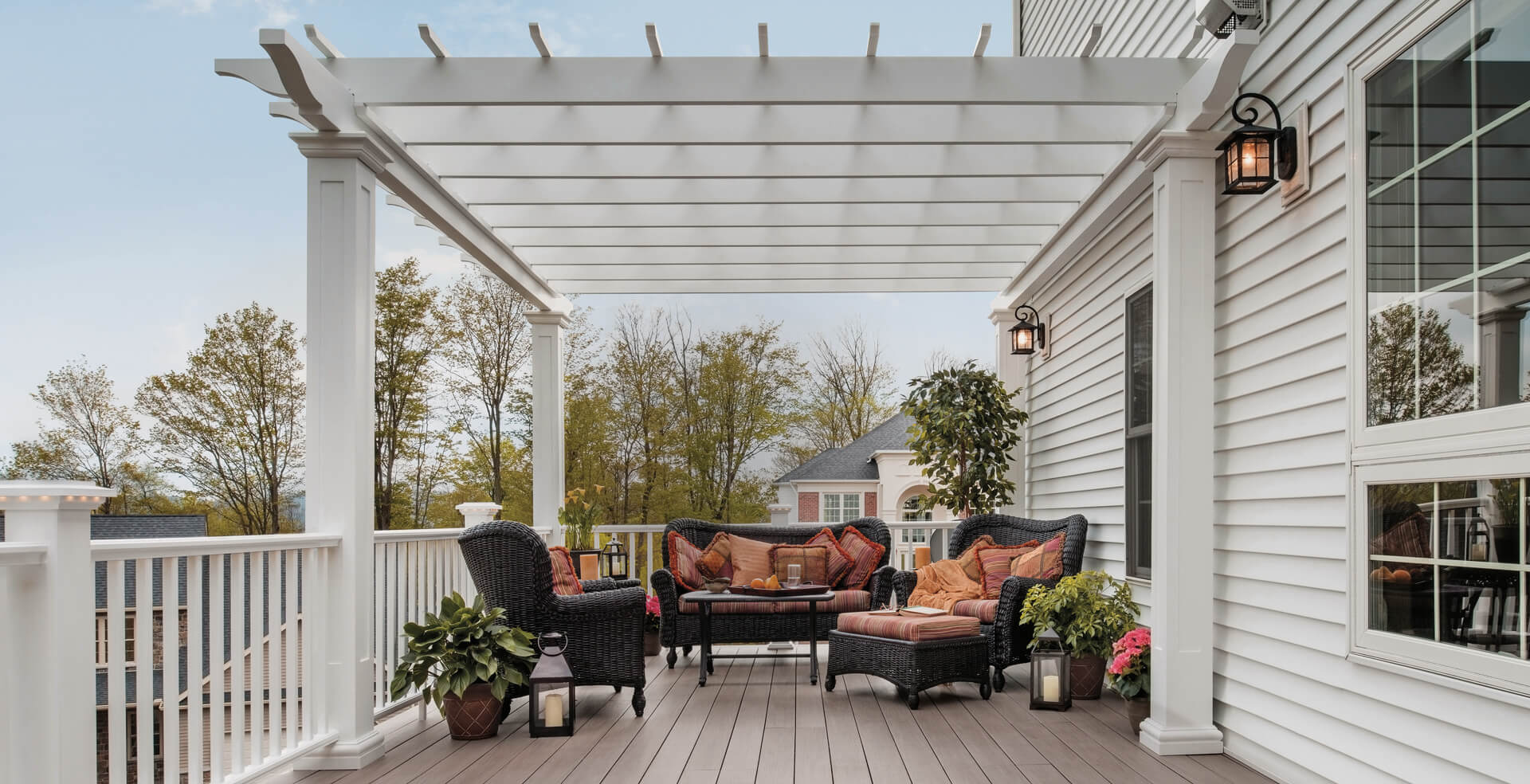Discovering Numerous Kinds and Benefits of Deck: A Comprehensive Guide
The outside deck is even more than simply an extension of one's living space; it's a testament to personal style, a location for social gatherings, and a shelter to take a break. The selection of outdoor decking material substantially affects these facets, with alternatives varying from the classic appeal of wood to the functionality of composite, and the longevity of aluminum. Understanding the nuances of these materials is important, so let's begin our exploration, one deck type at a time.
Recognizing the Fundamentals of Decking Material
Decking material acts as the backbone of any deck task, determining the general visual appeals, sturdiness, and performance of the end product. The marketplace supplies a substantial series of materials, each with unique attributes matched to numerous layout preferences and environmental problems. The option consists of natural wood, composite, plastic, aluminium, and even concrete. Timber, being the conventional option, gives a timeless, classic allure. Composite, a blend of wood and plastic, offers wood-like aesthetic appeals with less upkeep. Plastic and aluminium supply modern, minimalistic alternatives, while concrete is favored for its unrivaled longevity. The option of material dramatically influences the deck's life expectancy, maintenance needs, and resistance to aspects. Therefore, understanding the essentials of decking product is essential for an effective deck task.
Advantages and Downsides of Wood Decks
In evaluating deck kinds, understanding the advantages and disadvantages of wood decks ends up being crucial. This includes taking into consideration aspects such as the kind of wood chosen and its effect on the deck's efficiency. The subsequent discussion will check out these points in detail to provide an extensive view of the benefits and downsides connected with wood decks.

Timber Deck: Pros & Disadvantages
The charm of wood decks can not be overstated. They exude a timeless appeal and cozy aesthetic that several property owners discover irresistible. This all-natural product is versatile, enabling for a series of layout opportunities, and can give an excellent roi.
Nevertheless, timber decks likewise feature particular drawbacks. They require regular upkeep, including routine cleaning, staining or painting, and potential substitute of deformed or rotten boards. Wood is additionally prone to harm from bugs and harsh climate conditions. Its longevity can be much less than other outdoor decking products, particularly otherwise effectively taken care of.
Selecting Your Wood Kind

Exploring the Advantages of Composite Decking
Transforming interest to composite decking, it offers one-of-a-kind advantages. Its longevity exceeds typical wood in rough weather condition problems, reducing the need for regular upkeep. Moreover, it offers a pleasing visual charm with variable layout options.
Composite Decking Resilience Conveniences
Regardless of the wide variety of decking choices readily available in the market, composite outdoor decking stands out for its durability. This kind of decking, made from a blend of wood and plastic, supplies a resilient, resilient system resistant to elements that typically deteriorate various other materials. In summary, the toughness benefits of composite decking provide a lasting, cost-efficient service for outside living rooms.
Maintenance of Composite Decks
In addition to durability, composite decking flaunts a significant benefit in terms of upkeep. Unlike typical wood decks, composite decks are not susceptible to rot, warp, or insect damage, hence significantly reducing the need for regular repair work and substitutes. They likewise need no sanding, discoloration, or paint, making them a time-saving choice for home owners. Cleaning a composite deck is a simple task, commonly just calling for a move or a mild wash with a mild soap and water. The low-maintenance nature of composite decks not only offers ease of maintenance but also adds to their long-term cost-effectiveness. This useful benefit, integrated with the material's fundamental resistance to weathering and degeneration, makes composite decking a favored option for numerous individuals looking for a problem-free and long lasting outdoor decking solution.
Aesthetic Appeal and Variability

The Climbing Popularity of Light Weight Aluminum Decks: Why Select Them?
As the need for low-maintenance and resilient outdoor decking rises, aluminum decks are progressively becoming the best option for lots of house owners and building contractors. These decks, made from a lightweight yet sturdy metal, offer numerous benefits over conventional timber or composite decks. To start, light weight aluminum is naturally resistant to the aspects, meaning it will not warp, split, or discolor gradually. This makes it a cost-efficient choice over time. Additionally, its non-porous surface area avoids the development of bugs, mold and mildews, or fungis, making certain a clean and healthy and balanced exterior area. Aluminum decks are likewise environmentally friendly, as they are frequently made from recycled products and can be recycled once more at the end of their lifespan. Their sleek and contemporary aesthetic charm fits well into modern home styles.
Maintenance Tips for Different Decking Products
Despite the variety of outdoor decking products available on the marketplace, each includes its very own collection of maintenance requirements to make sure durability and visual charm. For instance, all-natural wood decks call for routine securing continue reading this or tarnishing to stop weather condition damage, while composite decks need regular cleaning with soap and water to get rid of stains and particles. On the various other hand, aluminum decks need less upkeep, only requiring occasional washing with water to keep them clean. Treated timber decks, although resistant look here to rot and bugs, additionally need constant sealing to maintain dampness out. As a result, comprehending these upkeep needs is vital for deck owners to optimize their financial investment and maintain their decks looking their best for many years ahead.
Aspects to Consider When Selecting Your Deck Type
What factors should one consider when choosing the type of deck to mount? The initial facet to examine is the climate. Certain materials are a lot more long lasting in certain climate condition. Composite decks stand up to moisture well, making them excellent for stormy or moist areas. The home owner's way of living must additionally affect the decision. If they delight in outdoor entertaining, they may go with a spacious, durable wood deck. Price is another substantial variable. While some might prefer an extravagant, unique timber deck, budget constraints could require a more economical selection like pressure-treated timber. Upkeep requirements need to be reviewed. Decks requiring much less maintenance, like plastic, can be useful for hectic property owners. Hence, environment, upkeep, cost, and way of living are essential factors to consider in deck option.
Conclusion
Wood decks captivate with all-natural beauty, while composite and light weight aluminum index ranges supply toughness and reduced upkeep. Prior to dedicating to a particular deck kind, property owners must carefully consider the advantages, drawbacks, and upkeep requirements of each product.
In evaluating deck kinds, recognizing the pros and cons of wood decks comes to be critical.In spite of the variety of decking alternatives available in the market, composite decking stands out for its resilience. Unlike typical timber decks, composite decks are not susceptible to rot, warp, or insect damage, thus considerably minimizing the need for normal fixings and replacements. These decks, made from a lightweight yet strong steel, supply several benefits over typical timber or composite decks. Natural wood decks require regular securing or discoloring to protect against climate damage, while composite decks require periodic cleaning with soap and water to eliminate discolorations and debris.